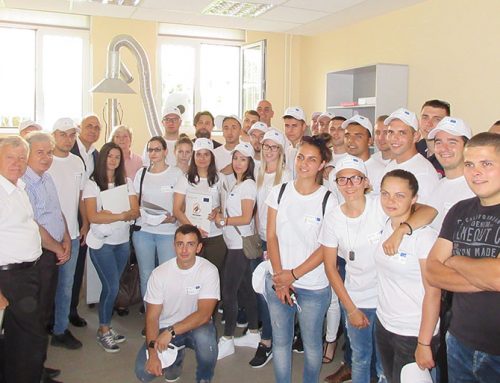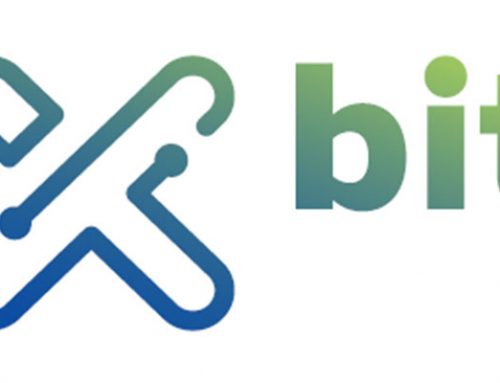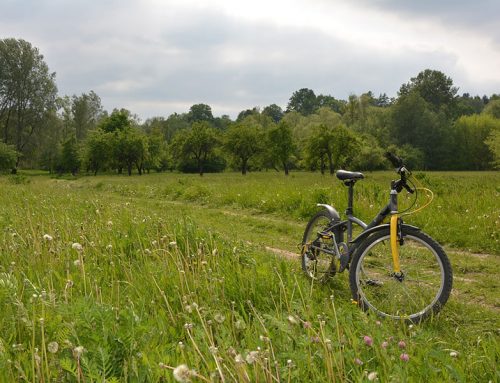Three-year old Andjela from a village near the municipality of Mali Zvornik in West Serbia could not go to kindergarten – because she lives in a remote mountain village, and there is no-one to drive her there and also because the overcrowded kindergarten did not have a place for her. Another 40 children from several villages in the area, like Andjela, could not have playtime and early childhood education with their peers.
In spite of the municipality’s efforts to find a solution and the goodwill of staff in the pre-school institution “Crvenkapa” in Mali Zvornik, these children were denied the opportunity to grow in the kindergarten. There was no place for any new children to enrol, and the transportation issue remained unresolved.
The issue has now been finally solved by a donation from the European Union (EU). Thanks to the Project “Improvement of Preschool Education in Serbia” (IMPRES) a mini-van picks up Andjela and her friends every day, takes them to the kindergarten where a special programme has been created for them, and then takes them back home. The van was obtained with EU funds and delivered to the institution for transporting children from seven villages in Mali Zvornik municipality. The transportation is free, and beside the children, parents and teachers are satisfied too.

“The progress is obvious in various ways, such as discipline and socialisation with other children. It’s also easier for me that she spends that time with other children and becomes used to school,” says a mother from the village Brasine, whose child is included in the pre-school education. “We spend time together and in that manner build a certain sense of belonging to the group and to each other, as well as develop tolerance and understanding,” adds Natasa Ristic, a teacher.
This is the only way for most of the children to mix together and play with other children. In the village households they live in, they only have adults, peers in the neighbourhood are rare, and frequently there is no other child in the family home either.
“Some children here saw other children for the first time. In the beginning, a fear was present, but they started playing together quickly and there are no problems now,” says teacher Svetlana Jovanovic. The principal of the Preschool Institution “Crvenkapa” Olga Todorovic stresses that thanks to EU assistance more than 40 children are now included in special programmes during their stay in the kindergarten.
Social inclusion of children in early childhood education and care
Mali Zvornik is one of 15 pilot municipalities included in the IMPRES Project which was implemented in cooperation with the Ministry of Education, Science and Technological Development. The Project, whose goal was the improvement of pre-school education in Serbia, was funded by the EU with a budget worth €3.75 million.
“The overall objective of the IMPRES Project was to contribute to social inclusion and poverty reduction by improving quality of pre-school provision and broadening access for children, especially from disadvantaged groups and by expanding of the capacities of pre-school institutions,“ said Michel Crepon, the Project Team Leader. Among the pilot municipalities participating in the programme were Pozarevac, Petrovac na Mlavi, Arandjelovac, Leskovac, Krusevac, Razanj, Surdulica, Gadzin Han, Bela Palanka, Uzice, Tutin, Ruma, Beocin, Sabac, and Mali Zvornik. The Project activities began in February 2011 and lasted until April 2014.
For the purpose of improving preschool conditions and quality, expanding the capacities of pre-school institutions, and broadening access for children from marginalised groups the Project contributed to the building of new prefabricated kindergartens in six municipalities while delivering vehicles for nine other pre-school institutions.
The network of pre-school institutions in Serbia is composed of 160 public and 63 private institutions. The inclusion of children from vulnerable groups (Roma, poor families, those living in villages) is particularly important for pre-school education in remote areas and was one of the focuses of the IMPRES Project as high numbers of children in kindergarten have only been recorded in the municipalities of Belgrade and in Vojvodina.
Even though pre-school education in Serbia has a long tradition the country now has one of the lowest participation rates in programmes for pre-school education in Europe. With EU efforts towards reforming preschool as a part of formal education, the purpose of caring for children in kindergartens as assistance for working parents is being substituted with a new concept that promotes early development education and care.
Activities of IMPRES Project included trainings, workshops and seminars for representatives of local self-governments and the staff working in pre-school institutions. In addition, the Project provided support in the organisation of pre-school networks and the development of an appropriate legal framework for pre-school education. A key support the Project provided was related to quality education and the change of educational practices in accordance with an open educational approach and interactive pedagogy existing in many other countries in the world.
According to data provided by the Ministry of Education, 32% of children aged from two to six-year old were in pre-school education in 2002, 47 % in 2009, while in 2011 and 2012 the figure reached 48 % of pre-school children included in the institutionalised preschool education.
The activities of EU assistance through the IMPRES Project strived to transform the existing forms of preschool education in Serbia into a decentralised, diversified and comprehensive system that would meet the standard of quality care and education of pre-school children and would enable parents to experience their right of choice and participation.



